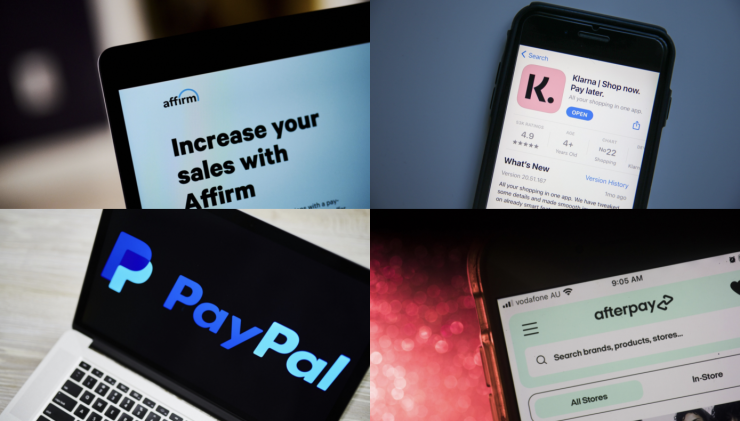When lawmakers last year urged the Consumer Financial Protection Bureau to
At the time, BNPL fintechs
One year later, that fire is far less bright.
In recent days BNPL fintechs Klarna and

Although BNPL loans are still popular with consumers, valuations for Affirm and Klarna have
"BNPL lending has introduced a lot of innovation, but it's based on 0% interest at a time when interest rates are rising, and it's already fallen off the hockey-stick growth we were seeing only last year," Nathan Hilt, managing director with the consulting firm Protiviti.
More pain could be inflicted as early as this month, as the CFPB said it will soon
The CFPB "looks like it's heading toward rule-making or putting BNPL under CFPB supervision," said Allen Denson, a partner at Stroock & Stroock & Lavan.
The CFPB's report will likely expose the good, the bad and the ugly aspects of BNPL fintechs' practices, Denson said. Positives could include BNPL loans' ability to expand credit access to new or underbanked borrowers and build credit histories. Negatives could involve unclear policies around penalty interest rates, late fees and inconsistent handling of sensitive consumer data.
"Any CFPB rulemaking is almost certain to focus on requiring BNPL lenders to provide disclosures, with some clear guidelines so consumers and lenders are operating under the same framework," Denson said.
The report will likely be the first step in a long process that could take up to a year, based on previous rulemaking for similar fintech-based payment categories like prepaid cards, which the CFPB addressed several years ago after a lengthy industry consultation, according to Denson, who predicts any rules would be disclosed toward the end of 2023.
Many BNPL providers might welcome regulations, because such guardrails often make it easier to compete by creating stability in a new or chaotic market, according to Denson.
Klarna, which put off a proposed initial public offering, is the latest BNPL fintech to signal trouble ahead.
The late-payment rate for the company's buy now/pay later loans rose above 2% for the first time this year in July and August, and CEO Max Levchin says a downturn is "more than likely."
In a semi-annual letter to shareholders this week, Klarna CEO Sebastian Siemiatkowski warned that Klarna is having a "very tumultuous" year so far, citing the Ukraine war, inflation and a "likely" recession.
Klarna's revenue during the first half of the year rose 24%, to $950 million, compared to the same period a year earlier. But pretax losses nearly tripled during the same time frame to $581 million from $141 million a year earlier. The overall delinquency rate on Klarna's consumer accounts is still relatively low at 0.7%, but higher than a 0.5% delinquency rate a year ago.
In the last year Klarna has burned through cash with heavy marketing investments and acquisitions, including launching a
"[Klarna's growth rate] is slower than its peers, but likely demonstrates the company's maturity in core markets," said analysts at Sanford Bernstein & Co.'s New York-based Autonomous equity research unit, in a Wednesday note to investors.
Affirm's stock tumbled last week after its latest quarterly results showed rising delinquencies and slower sales momentum, while CEO Max Levchin warned of a coming downturn that could further hurt Affirm's fortunes. Levchin also said Affirm is keeping an eye out for acquisitions that could complement the company, pointing to the likelihood of BNPL consolidation in the year ahead.
One merger — Zip's
Competition is also ratcheting up. Apple's BNPL service,
Because the BNPL industry is still relatively new and in flux, it's difficult to predict how consolidation and the implementation of rules could complicate its evolution, Protiviti's Hilt said.
"BNPL lending soared during an unusual time in the pandemic, when consumers were stuck at home and they liked not having to go through a formal credit check," he said.






